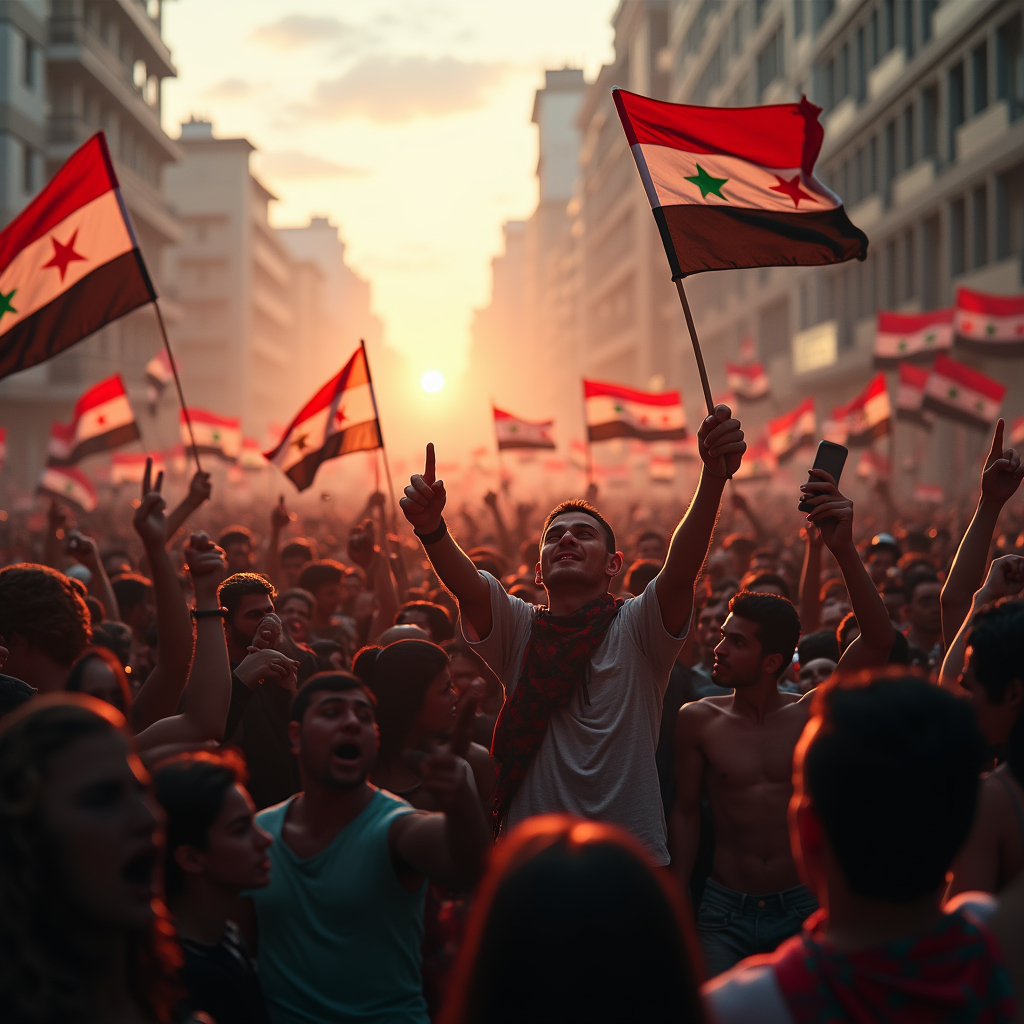In Syria 2025, the Middle East faces a seismic shift after the Assad regime’s collapse on December 8, 2024, when HTS-led rebels seized Damascus. After 24 years of brutal rule, Bashar al-Assad fled, leaving a power vacuum that has global powers and regional players scrambling. At NovexaHub’s News category, we’re diving into how Syria 2025 is reshaping the region’s balance of power. Is peace within reach, or is a new conflict brewing? Join the debate on X with #Syria2025.
Syria 2025: Assad’s Fall

HTS’s Rise
The fall of Assad ended Syria’s 13-year civil war, which killed over 500,000 and displaced millions. HTS, once tied to al-Qaeda but now claiming moderation, led the lightning offensive. On X, one user celebrated, “Syria 2025 is free!” but another warned, “HTS’s past is a red flag.” HTS’s interim government, led by Mohammad al-Bashir, pledges inclusivity, yet its control over Damascus faces challenges from rival factions and skeptical minorities.
Regional Rivalries
Syria 2025 is a geopolitical chessboard. Turkey, backing HTS, aims to curb Kurdish influence and repatriate 2.9 million refugees. Iran, reeling from losing its Syrian foothold, may support Shia militias. Saudi Arabia eyes a chance to counter Iran by backing Sunni groups. Russia, distracted by Ukraine, risks losing its Tartus naval base but may negotiate with HTS to stay. The U.S. hesitates to engage HTS, fearing a jihadist turn, per Atlantic Council.
Power Struggle in Syria 2025
The collapse of Assad, a key Iranian ally, weakens Tehran’s “axis of resistance” and boosts Turkey’s regional clout, per Middle East Institute. Israel, wary of instability, has bombed Syrian military sites to prevent weapons falling into rebel hands. On X, debates rage: “Will Syria 2025 spark peace or war?” A new Syrian government could inspire uprisings elsewhere, from Yemen to Iraq, or deepen Sunni-Shia divides.
Global Stakes
Syria 2025 tests international cooperation. The UN pushes for a transitional government, but consensus is elusive. Humanitarian needs are dire—16.5 million Syrians need aid, and millions of refugees await return. Explore related global shifts like Solar Storm 2025 at NovexaHub. Can Syria 2025 rise from chaos? Share your take on X with #Syria2025.
What This Means for the Middle East—and the World
The fall of Assad isn’t just a Syrian story; it’s a Middle Eastern earthquake. A power shift in Syria could embolden other opposition movements in the region, from Yemen to Iraq, threatening authoritarian regimes and potentially sparking new uprisings. At the same time, it could exacerbate tensions between Sunni and Shia powers, with Saudi Arabia and Iran likely to clash over influence in Damascus. Israel, already on high alert due to its ongoing conflict with Palestine is watching Syria closely—any sign of instability could lead to spillover violence along its borders.

